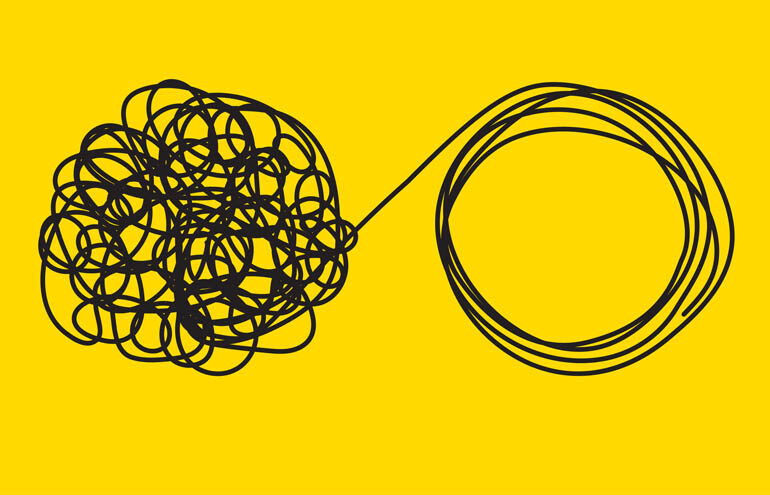Recently, I heard someone say that all successful people are working with — or have worked with — a coach. I don’t know if that’s true, but I do know that working with a coach can lead to more success, more quickly.

Table of contents
What to Expect When Working With a Coach
There are many different kinds of coaches. From life coaches to business development coaches to professional skills coaches. Each offers a unique perspective on your career and life and can help you define and achieve your goals.
You may have been considering working with a coach. Maybe you are feeling overwhelmed and a time management coach could help you find some calm again. Or perhaps you want to make a career change; a career coach could help you figure out your next steps. Or maybe life seems “fine,” but you’d like it to be “good” — or even “great” — and a life coach could help you get there.
Whatever you’ve been hoping to change or improve, it’s important to know what to expect from a coaching relationship.
While each coach has a different style and focus, there are some commonalities in all coaching relationships. Understanding them can help you choose the right coach, have a successful experience and get the results you want.
Here are five things to know about working with a coach.
1. Know What You Want, Even If It’s Broad and a Bit Vague
If you know what you want to change, you can jump right in with a coach to make those changes. Often, though, this is not the case. Many clients come to a coach precisely because they don’t know exactly what they want. That’s an OK place to be. A skilled coach can help you develop clarity.
It may start with figuring out what you don’t want — sometimes, that’s easier to know. Then assess your likes and dislikes, skills and strengths, and vision for the future. Considering all this, a coach can help you get clear on what you want.
Then you can start the work of getting there with the guidance and support of your coach.
2. Be Coachable
If you aren’t “coachable,” even the most skilled coach cannot help you. What does it mean to be coachable? It means you are open to change and welcome feedback, even if it can be hard sometimes. Coaching can sometimes be uncomfortable, but a good coach can help you understand how and what you need to do, and sometimes change, to achieve your goals. It’s important to want to change when the time comes and then be committed to making a lasting change for your success.
Remember that change, with or without a coach, is usually a process, so it’s helpful to trust the process and let it unfold in time.
3. The Client — That Means YOU — Does the Work
A coach for your life or career is the same as a coach for a sport. The coach helps you develop skills and guides you, but you do the work.
Think of it like working with a trainer at the gym. The trainer will give you the program and “spot” you to ensure you don’t hurt yourself. They will offer guidance during the workout and provide insights to help you stay on track between workouts. But you are the one who lifts the weights or runs the miles.
If you aren’t willing to do the work, the coaching relationship will not be successful, and you will not likely achieve your goals.
A coach is not the same thing as a mentor. A coach will guide you and you will do the work, whereas a mentor takes action on your behalf to ensure you have opportunities. Both are important but different. In fact, after working with a coach, you will have a better idea of what kind of mentor could help you.
4. Commitment Is Key
Not only must you be ready to do the work, but you’ll also need to ensure you are committed to making the time for the sessions and the action items generated in the coaching sessions. Make your coaching sessions a priority. Treat them like an important client meeting. This is your life and career we’re talking about here! What’s more important? Prepare beforehand and reflect afterward. Taking this time will help you get the most out of your coaching program.
5. Honesty — With Yourself and Your Coach — Is Required
Much like therapy, you cannot expect authentic change if you aren’t honest with yourself and your coach. A coach can only help you if you share your fears, thoughts and failures; in other words, all the things we lawyers mostly like to keep hidden inside. But the coaching relationship is one of confidentiality, so you’ll need to be honest.
Of course, to be honest with others, you first must be honest with yourself. As you start and continue your coaching relationship, take time to reflect on your habits, skills, communication style and potential problem areas. You can do this by reviewing assessments at work or talking with colleagues and friends. Many coaches will offer you assessment tools to help guide your progress. If so, you’ll need to be open and honest as you take those assessments.
Life, and trying to live a life while practicing law, can be difficult. But you don’t have to go it alone. A coach can help you identify what you want and how to get there. Most offer a free initial consultation to determine if they can help you. And you can determine if you might like to work with them. So reach out, schedule a few consults, and find the right coach.
Related reading: “Coach Curious? Questions to Ask Before You Hire a Coach“‘“ by Meyling Ly
Image © iStockPhoto.com.

Sign up for Attorney at Work’s daily practice tips newsletter here and subscribe to our podcast, Attorney at Work Today.
Have You Read Jamie Spannhake’s Bestselling Book?
 Find Your Calm in the Chaos
Find Your Calm in the Chaos
In “The Lawyer, the Lion, and the Laundry: Three Hours to Finding Your Calm in the Chaos,” lawyer and certified health coach Jamie Spannhake helps you learn how to CHOOSE, ACT and THINK in ways that will clarify your desires and set priorities so you can reclaim your time and enjoy your life.
Available in the Attorney at Work bookstore, here.
















